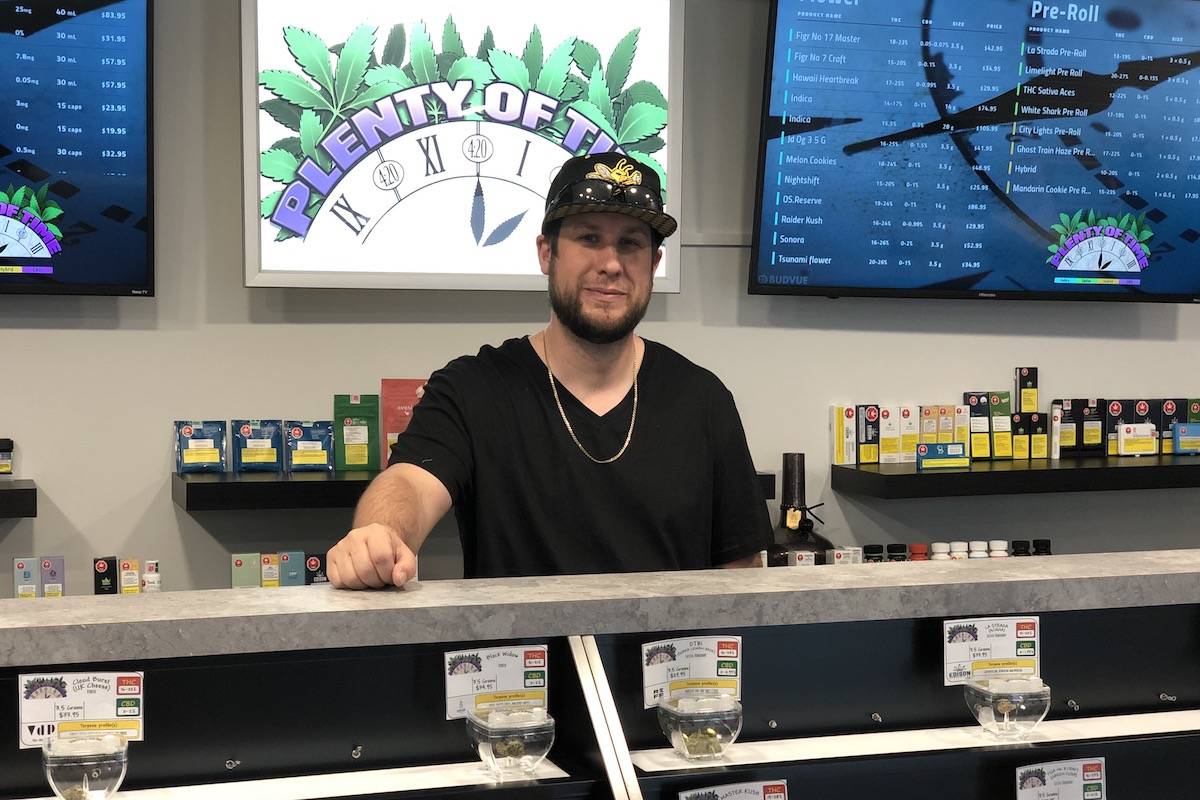Long before businesses were hit by COVID-19, Dustin Schook’s cannabis venture in Campbell River was already being crumpled by bureaucratic dogmas.
When the pandemic struck, Schook’s troubles only doubled.
Regulations in B.C. prohibit online sales and delivery of cannabis and this particularly affected cannabis retailers such as Schook who were forced to keep their stores open and sell products to customers only inside the store.
Schook said that these regulations made “no sense” during the pandemic, especially, since it could “compromise the safety” of both customers and staff.
He fails to understand why B.C. could not ease regulations to allow online sales or curbside delivery to customers during the pandemic, especially since many other provinces in Canada were now allowing it.
Inside Schook’s store, there are pamphlets spread across the countertop bearing a petition by The Association of Canadian Cannabis Retailers (ACCRES) demanding permission to sell online and allow curbside delivery.
In a letter to B.C. Solicitor General, Mike Farnworth, ACCRES has called on the province to allow independent cannabis retailers to switch to online sales and deliver products to customers.
Three months ago when Schook’s cannabis store, Plenty Of Time, opened in Campbellton, it was Campbell River’s first non-government store.
READ MORE: First non-government cannabis retailer in Campbell River opens in Campbellton
The only other store in town, B.C. Cannabis Store, opened in July 2019 and was the first government-operated store on Vancouver Island.
READ MORE: Vancouver Island’s first government-operated cannabis store opens in Campbell River
Getting into the cannabis business seemed like a lucrative venture for Schook who observed the sector grow tremendously since non-medical cannabis was legalized by the federal government in 2018.
But as soon as he applied for his licensing, Schook learned that it was not going to be an easy journey. After a months-long delay in getting his license, when he finally got around to opening the store, there were further regulations.
He was not allowed to advertise, not even on Facebook.
In an age where sales are driven by cutthroat advertising strategies, Schook asks, “How am I supposed to survive without advertising and marketing?”
“How are people going to know the store exists?”
The answers to these two questions directly determine profitability.
There’s obviously demand in Campbell River, admits Schook.
“There has been a steady incline since the store opened,” said Schook, but then COVID-19 struck and the money was not enough to pay the bills and staff and meet the expensive regulatory standards that the store is supposed to adhere to.
“It costs me hundreds of dollars every week just to change the products in the smell jars alone,” said Schook and maintained that he was not making enough money “to sustain as a business.”
To add to it, the competition is stiffening. Schook is convinced that the government cannabis store is not looking just to compete, but to annihilate his business altogether.
“They’re (BC Cannabis Store) is directly competing with me,” Schook said
He said that government-run stores can afford to price their products low by lowering the profit margin since they are subsidized and salaried by the government. But for independent cannabis owners, to price products that low, “it bleeds money,” he said.
“I can’t compete with those prices even if I wanted to.”

